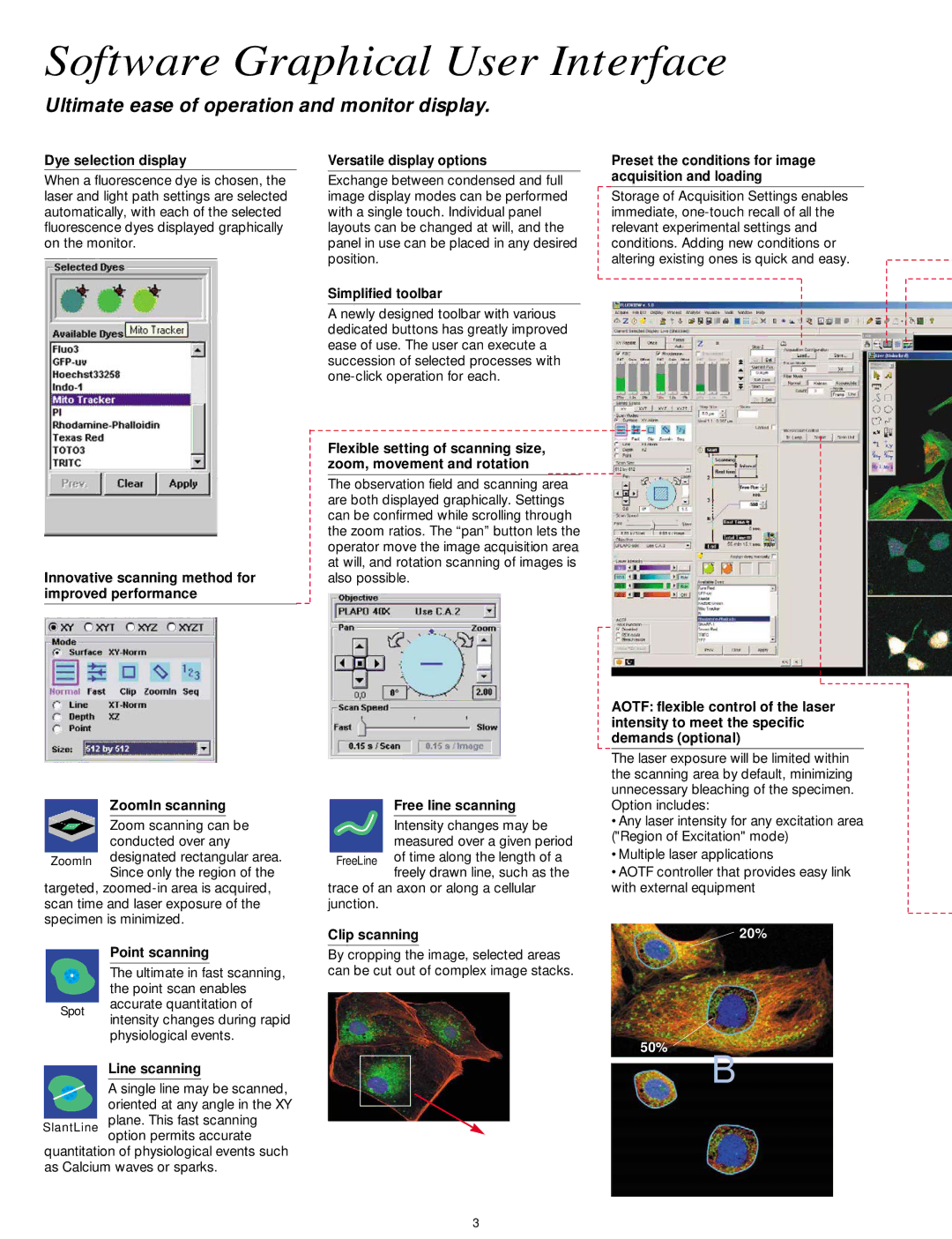
Software Graphical User Interface
Ultimate ease of operation and monitor display.
Dye selection display
When a fluorescence dye is chosen, the laser and light path settings are selected automatically, with each of the selected fluorescence dyes displayed graphically on the monitor.
Versatile display options
Exchange between condensed and full image display modes can be performed with a single touch. Individual panel layouts can be changed at will, and the panel in use can be placed in any desired position.
Simplified toolbar
A newly designed toolbar with various dedicated buttons has greatly improved ease of use. The user can execute a succession of selected processes with
Preset the conditions for image acquisition and loading
Storage of Acquisition Settings enables immediate,
Innovative scanning method for improved performance
| ZoomIn scanning | |
| Zoom scanning can be | |
| conducted over any | |
ZoomIn | designated rectangular area. | |
Since only the region of the | ||
|
targeted,
| Point scanning | |
| The ultimate in fast scanning, | |
| the point scan enables | |
Spot | accurate quantitation of | |
intensity changes during rapid | ||
| ||
| physiological events. |
Line scanning
A single line may be scanned, oriented at any angle in the XY
SlantLine plane. This fast scanning option permits accurate
quantitation of physiological events such as Calcium waves or sparks.
Flexible setting of scanning size, zoom, movement and rotation
The observation field and scanning area are both displayed graphically. Settings can be confirmed while scrolling through the zoom ratios. The “pan” button lets the operator move the image acquisition area at will, and rotation scanning of images is also possible.
Free line scanning
Intensity changes may be measured over a given period
FreeLine of time along the length of a freely drawn line, such as the
trace of an axon or along a cellular junction.
Clip scanning
By cropping the image, selected areas can be cut out of complex image stacks.
AOTF: flexible control of the laser intensity to meet the specific demands (optional)
The laser exposure will be limited within the scanning area by default, minimizing unnecessary bleaching of the specimen. Option includes:
•Any laser intensity for any excitation area ("Region of Excitation" mode)
•Multiple laser applications
•AOTF controller that provides easy link with external equipment
20%
50%
B
3
